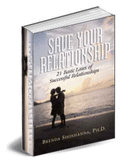"Based upon 30 years of providing therapy as a Psychologist and Psychoanalyst to both individuals and couples, I've realized how much hurt and disappointment comes from unfulfilled hopes, misunderstandings and lack of real communication.
My work has been dedicated to integrating psychology and spirituality and applying it directly in our everyday lives. As a long term Zen practitioner as well as a psychologist, I enjoy discovering new, constructive, approaches to life's challenges.
I am author of many books, including The Anger Diet (30 Days To Stress Free Living), Zen and the Art of Falling in Love, (Simon and Schuster), Zen Miracles (Finding Peace In An Insane World) and many others.
My training includes psychoanalytic, psychodynamic, humanistic and transpersonal approaches. However, I work with each individual's uniqueness, seeing what that individual's life direction, wishes and goals may be.
In my work I focus upon an individual's gifts and strengths. As these grow stronger, many difficulties and unnecessary defenses fall away by themselves."
Taking the first step toward getting help is often the most difficult -- please don't hesitate to: email me
GENERAL
Gender: Female
Years in Practice: 20+ Years
Avg Cost (per session): $120-$150
Sliding Scale: No
Accepts Insurance: No
CLIENT FOCUS
Ethnicity: Any
Gender: All
Religious Orientation: Any
Gay/Lesbian Focus: —Alternative Languages: —Age: Adults, Elders
QUALIFICATIONS
Undergraduate School:
Barnard University
Graduate School:
Adelphi University
Year Graduated: 1972
License No. and State: 004253 New YorkPh.D.
Doctor of philosophy. This academic degree is earned in four to seven years. Many psychologists, therapists, counselors and coaches hold a doctorate of philosophy. A Ph.D. in psychology teaches theory as well as statistics and data gathering. Many Ph.D.s go on to work in academic settings, as researchers and professors. Psychologists with a Ph.D. are also fully trained in the assessment and treatment of all behavioral conditions, from anxiety and depression to anger and resentment. (American Psychological Association)
SPECIALTIES
Specialties:
Relationship Issues
Personality Disorders
Loss or Grief
Depression
Anxiety or Fears
Divorce
Domestic Abuse or Violence
Gay Lesbian Issues
Life Coaching
Parenting
Spirituality
Impulse Control Disorders
TREATMENT PREFERENCES
Orientation:
Psychodynamic Therapy
Psychodynamic therapy is also known as insight oriented therapy. It evolved from Freudian psychoanalysis in which the therapist interprets the patient's words and behaviors. This approach holds that bringing the unconscious into conscious awareness promotes insight and resolves conflict. This therapy involves more frequent sessions than CBT does.
Transpersonal
This branch of psychology is concerned with the study of states and processes in which people experience a deeper or wider sense of who they are—or a sense of greater connectedness with others, nature or the spiritual dimension. Transpersonal psychology extends into consciousness studies, spiritual inquiry, mind-body relationships and transformation. Carl Jung first coined the term transpersonal(uberpersonlich) when he used the phrase transpersonal unconscious as a synonym for collective unconscious.
Modality:
Couples
Group
Individuals
EASY ACCESS
Nearby Towns: New York NY
Nearby Counties: New York
Nearby Zips: 10028
 SAVE YOUR RELATIONSHIP (www.truthaboutlove.com) is a ground-breaking relationship counseling program. It unlocks to the proven methods to overcoming the most difficult relationship problems.
SAVE YOUR RELATIONSHIP (www.truthaboutlove.com) is a ground-breaking relationship counseling program. It unlocks to the proven methods to overcoming the most difficult relationship problems.
Written by Dr. Shoshanna, a state licensed Psychologist & Psychoanalyst. She is an award winning international author, a resident relationship expert on i.village.com -and a professor at Barnes and Noble University Online. She appears regulary on network TV, sharing relationship advice, guidance and healing with audiences worldwide.


